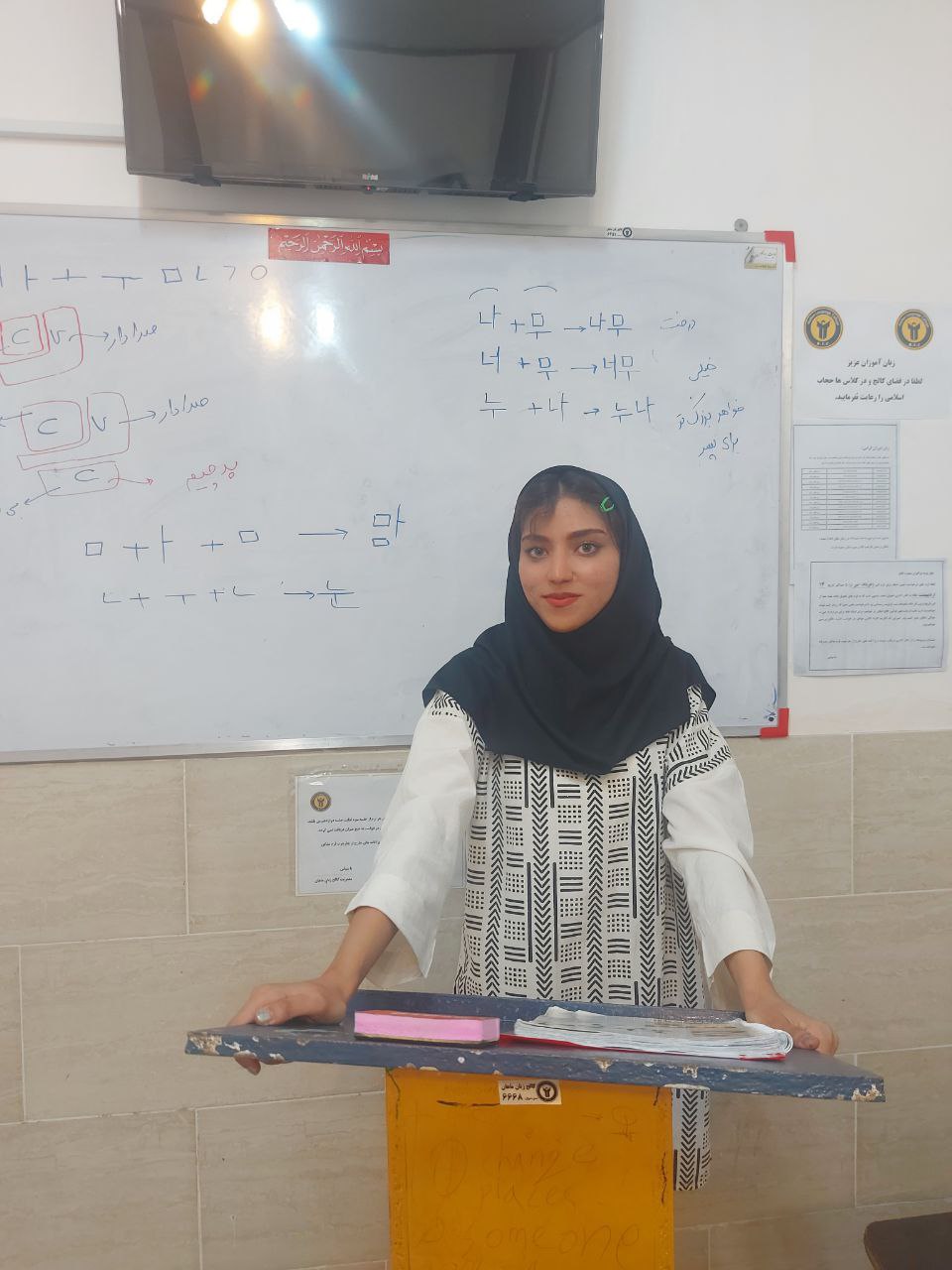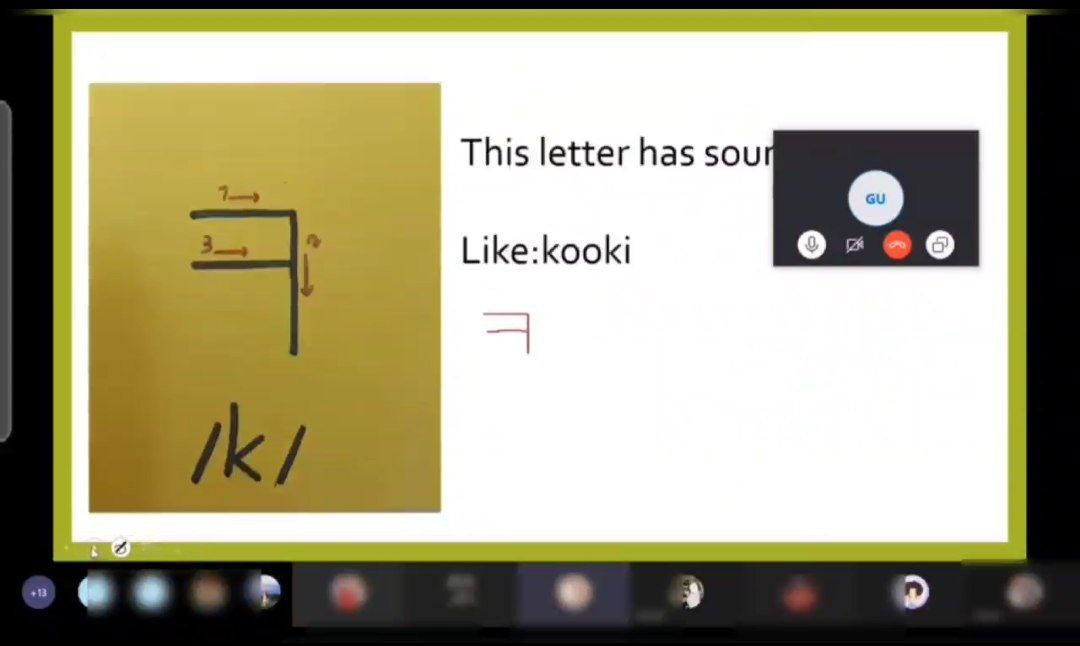- 한국어
- English
- 日本語
- 中文
- العربية
- Español
- Français
- Deutsch
- Pусский
- Tiếng Việt
- Indonesian
By Honorary Reporter Mohammad Keshavarzian from Iran
Photos = Heliya Yahyapour Torshizi
How does it feel to teach Korean as a non-native speaker of the language? Heliya Yahyapour Torshizi, an instructor of Korean in Mahan Language College in Mashhad, Iran, describes her experience in an interview held from June 30 to July 1 using text messages.

Heliya Yahyapour Torshizi stands behind her podium in her classroom.
What inspired you to learn and teach Korean?
I started learning Korean two years ago because I was interested in Korean culture. I now teach this language to help those with the same interest learn more about Korean culture.
What challenges did you face while learning the language?
The biggest challenge in learning any language is the ability to speak and memorize the vocabulary. While self-studying Korean in the beginning, I didn't know if I was using the correct words or grammar. So I went to the Tehran branch of King Sejong Institute to take classes and the teacher gave us excellent lessons, answering my questions so well that I wanted more books and advanced study.
How has your non-native background influenced your teaching?
Because I can speak the language of my students (Farsi), I can easily explain the meaning of Korean words and grammatical rules.
What materials or methods did you find most helpful when learning Korean?
I started with the Ewha Korean textbooks, but when I enrolled at King Sejong Institute, the books provided with the class became my primary resource. In addition, I used the "Talk To Me in Korean" podcasts and conversation books from the institute to improve my listening.
How do you stay motivated to learn Korean?
My goal for learning Korean is to communicate well with Koreans and achieve complete command of the language to share my knowledge with students. I learn idioms by watching Korean movies and talking to my Korean friends, and I make educational clips for use in my classes. I love it when my students understand the dialogues of their favorite actors.
Share a memorable experience you had while learning or teaching Korean.
Taking classes at King Sejong was one of my best experiences to learn Korean. In addition to my regular classes, I also taught a free online class for international students. I never thought while learning Korean that I'd later teach it.

The teacher holds online classes via Skype.
How do you incorporate Korean culture into your lessons?
I play videos featuring Korean culture such as traditional dances and songs. I also explain the cultural etiquette associated with eating or talking to elders.
What are common misconceptions of Korean that your students have?
In the beginning, some students seem to have the impression that Hangeul is as complicated as Chinese characters. But once they start, they find it easier than thought because Korean is highly similar in grammatical structure to Farsi.
How do you incorporate technology into your classes?
I use visual material such as movie clips or animation to teach topics related to Korean culture. I also use apps with quiz functions to evaluate students and upload educational content on social media apps.

These are samples of homework Heliya Yahyapour Torshizi assigns to her students.
How do you help your students develop each skill in Korean?
For speaking, I create opportunities in class where students can converse in Korean among themselves. For listening, I give audio files as homework so that students can guess what's being said. For writing, I have students write about a specific topic associated with each lesson. For reading, I use a variety of materials such as Ewha Korean, texts from King Sejong Institute and a reading book from Yonsei University of Korea for more practice.
What are your favorite Korean expressions?
I like "Gosaeng kkeutae naki onda," which literally means "After difficulty comes pleasure." This proverb helps me a lot when I feel I'm losing motivation.
How do you see the future of Korean-language education?
I think it has a bright future. The number of people interested in the Korean language and culture is rising, and I'm sure it'll emerge as one of the more popular foreign languages to learn worldwide.
msjeon22@korea.kr
*This article is written by a Korea.net Honorary Reporter. Our group of Honorary Reporters are from all around the world, and they share with Korea.net their love and passion for all things.
Most popular
- Grammy-winning producer calls Suga of BTS 'amazing artist'
- 'Universal love, family' themes fuel success of 'King of Kings': director
- Council sets minimum hourly wage in 2026 at KRW 10,320
- Expansion of foreign app system raises tourist convenience
- Nat'l population diversity rose nearly 8% from 2018-22: study
